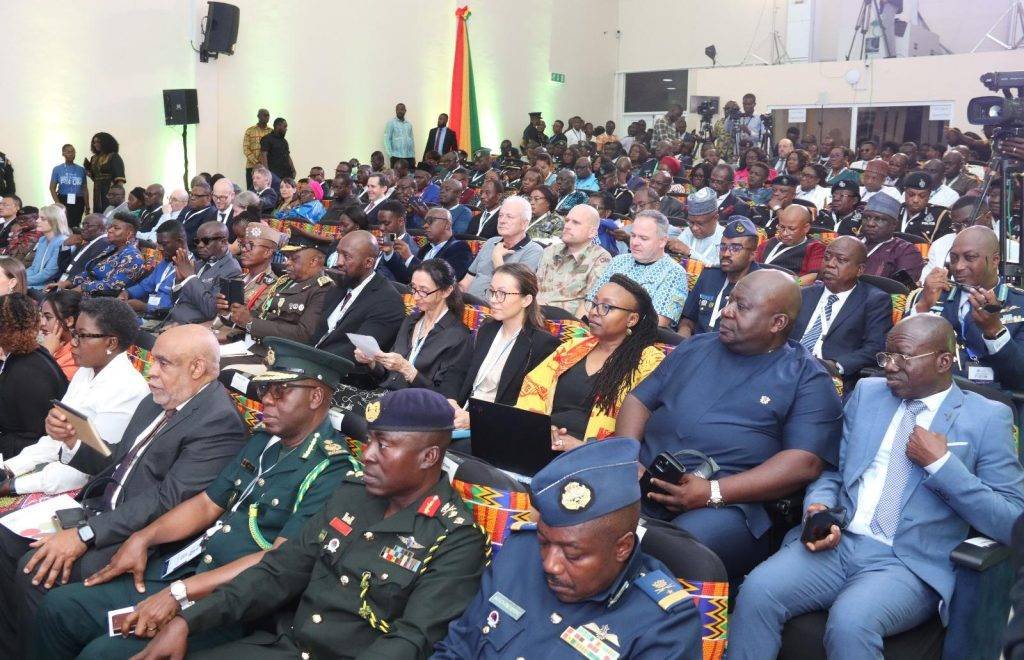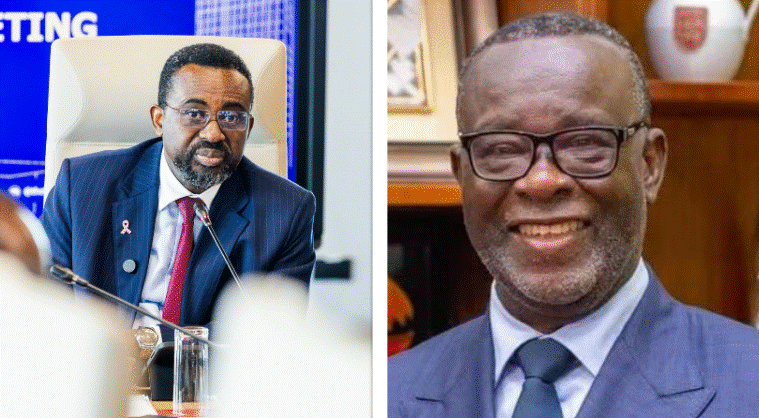
By Hannah Gyamfua Mensah
Migration, whether voluntary or forced, increasingly shapes the dynamics of family life and relationships across borders. As people cross borders in pursuit of opportunity or refuge, they carry with them their personal histories, cultural norms, and emotional attachments.
As individuals move between legal systems, marriages contracted in one country often face complex questions of recognition, validity, and legal consequence in another. The intersection between migration and marriage law thus raises crucial issues of human rights, private international law, and gender equality.
These determine not only the status of spouses but also their rights to family unity, property, residence, and protection from exploitation.
Marriage as a Human Right is enshrined in key international instruments: Article 16 of the Universal Declaration of Human Rights (UDHR, 1948), Article 23(2) of the International Covenant on Civil and Political Rights (ICCPR), Article 16 of the Convention on the Elimination of All Forms of Discrimination Against Women (CEDAW), and Article 18 of the African Charter on Human and Peoples’ Rights. Across jurisdictions, the human right to marry is balanced against the sovereign authority of states to regulate marriage
Yet, when individuals migrate, the exercise of this right becomes conditional on state law, immigration policy, and cultural acceptance. A Ghanaian who marries under the Marriage Ordinance in Accra may find that recognition abroad depends on compliance with the host state’s lex loci celebrationis (law of the place of celebration).
Similarly, a civil marriage in Germany or Canada may be valid globally, except in jurisdictions where public policy restricts recognition on grounds of gender or monogamy.
The migration effect on the dualities of love exposes couples to multiple legal realities. Globally, marriage takes several legal forms: civil or statutory (e.g., Ghana’s Marriage Ordinance, Germany’s Bürgerliches Gesetzbuch), customary (community-based and sometimes polygamous), and religious (Sharia or Canon law).
Each framework has distinct rules on capacity, consent, property, and dissolution. Migrants navigating these systems face conflicts of law such as polygamous or same-sex marriages valid in one country but invalid elsewhere. Thus, love that transcends borders must also navigate the jurisdictional frontiers of law. For instance:
- Dual systems: Many African states recognize customary, religious, and ordinance marriages, while European systems rely on civil registration only.
- Conflict of laws: A customary polygamous marriage valid in Ghana may not be recognized in Germany or the United Kingdom.
- Status ambiguity: Migrants often discover that their marriages, though spiritually binding, lack legal force abroad , affecting residence rights, inheritance, and family unity.
Therefore, the recognition of marriages across borders must follow the principle of lex loci. Under private international law, the principle of lex loci celebration holds that a marriage valid where celebrated, is valid everywhere unless it violates the public policy of the forum state.
Civil marriages from Germany or Ghana are generally recognized in Europe, Africa, and North America, while customary or religious unions may not be, depending on the host state’s monogamy or equality laws.
Stated differently, the legal effects of transnational marriages depend on national and international frameworks: status recognition, property and inheritance rights, custody and child protection, and potential criminal implications such as bigamy or fraud. States balance personal rights, public policy, and treaty commitments to resolve these conflicts.
On potential criminal implications such as bigamy, a telling example emerges when a person married under a monogamous civil regime abroad, for instance, Germany’s Bürgerliches Gesetzbuch (1303–1353) and returns home to Ghana and enters a second union under customary or ordinance law.
In such an instance, this act constitutes bigamy, a criminal offence under Ghana’s Criminal Offences Act (Act 29, s. 262). The second marriage, though culturally accepted or emotionally genuine, is void ab initio, invalid from inception. This conflict between cultural expectation, diaspora distance, and legal rigidity is a classic manifestation of the Lumba Effect: love outpacing law.
Family Unity, Marriage and Immigration Law lie at the heart of migration governance. Frameworks such as the EU Family Reunification Directive (2003/86/EC), the U.S. Immigration and Nationality Act, and Ghana’s Immigration Act (Act 573) all hinge on proof of a legally recognized marriage. Where recognition fails, families risk separation or loss of residency rights. Conversely, efforts to curb fraudulent or convenience marriages have prompted stringent scrutiny, at times jeopardizing genuine transnational relationships.
Additionally, the gendered inequalities, power, and precarity are embedded in transnational unions. Most people, especially women who migrate through marriage frequently depend on their spouse’s legal status for residence or financial security. When marriages fail, lack of recognition or proof can render them legally invisible. International norms, particularly CEDAW Art. 16 and the Maputo Protocol Art. 6, require states to protect women’s equal rights within marriage, ensure consent, and provide remedies for abandonment or exploitation. However, enforcement often lags behind mobility realities.
Migration also transforms the very meaning of marriage beyond legality. It adds a layer of cultural identity and transnational belonging. Diaspora couples often live between dual cultural expectations; Western notions of contractual equality and African notions of communal belonging. Ceremonies, dowries, and lineage obligations adapt to fit borderless lives. These evolving practices reflect how migration globalizes intimacy while demanding new legal and cultural vocabularies to protect it.
In conclusion, migration globalizes family formation but complicates legal recognition. The Lumba Effect teaches that migration does not dissolve love but redefines its legality. To safeguard migrant families, states must harmonize recognition rules, ensure gender-sensitive policies, and uphold the universal right to marry and found a family, grounded in dignity, equality, and justice. Ultimately, behind every cross-border marriage lies a story of aspiration and vulnerability, a reminder that the law’s purpose is not only to regulate unions, but to uphold dignity and belonging in an interconnected world- The Human Face of Law
Selected Legal Instruments and References
Universal Declaration of Human Rights (1948); ICCPR (1966); CEDAW (1979); African Charter on Human and Peoples’ Rights (1981); Maputo Protocol (2003); Marriage Ordinance (Ghana, Cap. 127); Criminal Offences Act (Ghana, Act 29); Bürgerliches Gesetzbuch (BGB) (Sections 1303–1353); EU Family Reunification Directive (2003/86/EC); ECHR (Art. 8); Convention on the Rights of the Child (1989).
Disclaimer:
The term “Lumba”, derived from the Marwari language of Rajasthan, India, where it means “bangle” symbolizing unity and continuity. It is employed purely in a conceptual and scholarly context, to discuss migration and marriage. It bears no relation to any individual or ongoing legal matter.
Hannah Gyamfua Mensah is a Migration Analyst and Researcher with interests in Migrant Liminality and Precarity, Internal displacements, Climate Change, Migration Governance and Sustainable development. She is passionate about promoting inclusive, rights-based solutions to human migration and its related global realities. Contact:http://linkedin.com/in/hannah-gyamfua-mensah-62a78934
The post The Lumba effect: Migration and marriage appeared first on The Business & Financial Times.
Read Full Story











Facebook
Twitter
Pinterest
Instagram
Google+
YouTube
LinkedIn
RSS